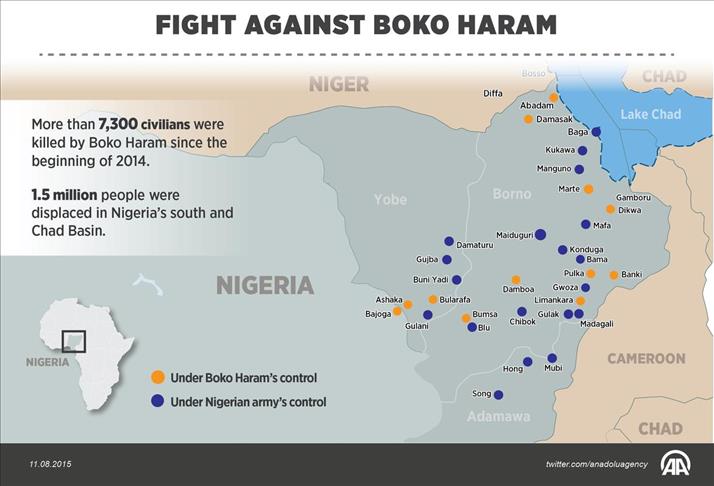
By Rafiu Ajakaye
KANO, Nigeria
Many things have changed in northern Nigeria, including its commercial capital town of Kano, a city of 9.3 million people.
I last visited Kano in 2007 to attend an event in preparation for the country's general election.
Kano is now a markedly different place from the one I visited in 2007, not least Mallam Aminu Kano International Airport, which has undergone a serious face lift.
But much more has changed since then.
Flying in from Lagos, southwest Nigeria, to cover a United Nations Children's Fund event, I feared potential Boko Haram attacks.
Back in 2007, Kano was notorious only for its ethno-religious crises. Boko Haram was not a problem back then.
The first major Boko Haram attack in Kano took place in January 2012 at a police station in the Bompai area of the metropolis.
The UNICEF event was, incidentally, being held around the same area.
Several other deadly attacks have taken place since then, including one on Nov. 28, 2014, in which over 120 Muslim worshipers were killed in bomb attacks at Kano’s central mosque.
These events have changed Kano, as it has many other northern states.
As our flight touched down at around 2 p.m. local time and we moved out of the departure lounge to get a taxi into town, I avoided the crowd of cab men and other bystanders at the entrance.
I noticed that many of my colleagues were also avoiding the crowd.
Before leaving Lagos, I had arranged to stay with my sister-in-law and her husband.
She was coming to escort me to their house, when she rang me and said: “I am sorry Rafiu, I am trying to get another taxi to the airport.”
She would later lament how things have changed, how brotherly relations have given way to mutual suspicion, and how people fear to offer help these days.
In the time between my arrival and the coming of my sister-in-law, I patiently sat outside the arrival lounge, vigilantly watching people come and go.
I was terrified when two women in long Muslim head coverings approached where I was seated.
My mind raced to stories of how people in such head coverings detonated explosives in crowded areas.
In the end, it turned out they meant no harm.
But this did not sooth my fears.
I refused to cross the road at the same time as a teenage girl apparently going to an Islamiyyah, the name for Islamic learning centers in northern Nigeria.
I am not sure if all this fear was necessary, but my mind kept telling me that I needed to be careful.
The fear I felt contrasted sharply with my last experience of Kano in 2007, a predominantly Muslim city of hospitable and hard-working people.
I remember walking down a few meters from my hotel to buy a slice of watermelon from a fruit vendor. I also remember visiting a very popular market called Kori to get some textile materials.
These are risks that I would not take in Kano now, or anywhere in the north for that matter, due to the security situation.
Only recently, two suspected teenage female suicide bombers were arrested in Kori for attempting to carry out a suicide attack.
In discussions with colleagues, I realized that I was not alone in holding this attitude.
Kano has grown tremendously in terms of public infrastructure and I would have liked to go see the much-talked about Ring Road recently built, new shopping malls and other attractions – but the fear of Boko Haram just would not let me venture out beyond the unavoidably necessary.
Anadolu Agency website contains only a portion of the news stories offered to subscribers in the AA News Broadcasting System (HAS), and in summarized form. Please contact us for subscription options.

